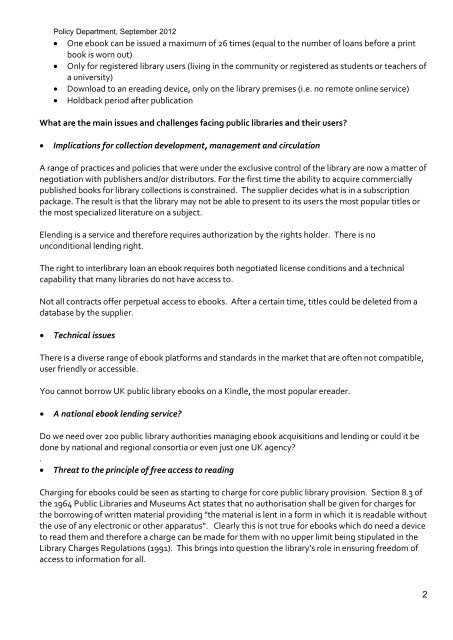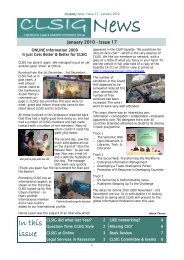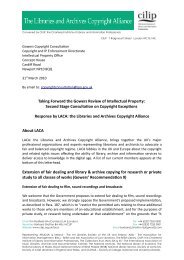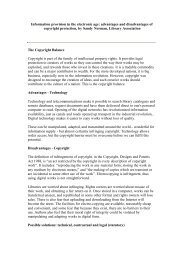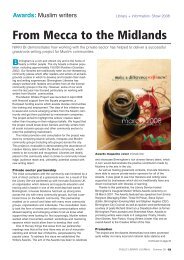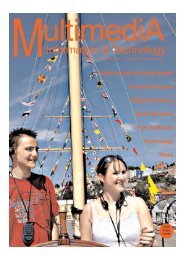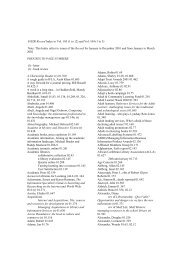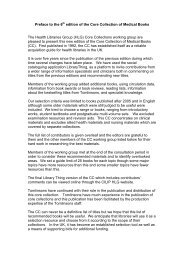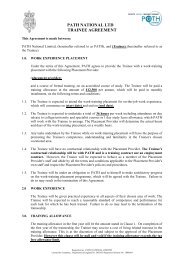Ebook lending by public libraries - CILIP
Ebook lending by public libraries - CILIP
Ebook lending by public libraries - CILIP
You also want an ePaper? Increase the reach of your titles
YUMPU automatically turns print PDFs into web optimized ePapers that Google loves.
Policy Department, September 2012<br />
� One ebook can be issued a maximum of 26 times (equal to the number of loans before a print<br />
book is worn out)<br />
� Only for registered library users (living in the community or registered as students or teachers of<br />
a university)<br />
� Download to an ereading device, only on the library premises (i.e. no remote online service)<br />
� Holdback period after <strong>public</strong>ation<br />
What are the main issues and challenges facing <strong>public</strong> <strong>libraries</strong> and their users?<br />
� Implications for collection development, management and circulation<br />
A range of practices and policies that were under the exclusive control of the library are now a matter of<br />
negotiation with publishers and/or distributors. For the first time the ability to acquire commercially<br />
published books for library collections is constrained. The supplier decides what is in a subscription<br />
package. The result is that the library may not be able to present to its users the most popular titles or<br />
the most specialized literature on a subject.<br />
E<strong>lending</strong> is a service and therefore requires authorization <strong>by</strong> the rights holder. There is no<br />
unconditional <strong>lending</strong> right.<br />
The right to interlibrary loan an ebook requires both negotiated license conditions and a technical<br />
capability that many <strong>libraries</strong> do not have access to.<br />
Not all contracts offer perpetual access to ebooks. After a certain time, titles could be deleted from a<br />
database <strong>by</strong> the supplier.<br />
� Technical issues<br />
There is a diverse range of ebook platforms and standards in the market that are often not compatible,<br />
user friendly or accessible.<br />
You cannot borrow UK <strong>public</strong> library ebooks on a Kindle, the most popular ereader.<br />
� A national ebook <strong>lending</strong> service?<br />
Do we need over 200 <strong>public</strong> library authorities managing ebook acquisitions and <strong>lending</strong> or could it be<br />
done <strong>by</strong> national and regional consortia or even just one UK agency?<br />
.<br />
� Threat to the principle of free access to reading<br />
Charging for ebooks could be seen as starting to charge for core <strong>public</strong> library provision. Section 8.3 of<br />
the 1964 Public Libraries and Museums Act states that no authorisation shall be given for charges for<br />
the borrowing of written material providing "the material is lent in a form in which it is readable without<br />
the use of any electronic or other apparatus". Clearly this is not true for ebooks which do need a device<br />
to read them and therefore a charge can be made for them with no upper limit being stipulated in the<br />
Library Charges Regulations (1991). This brings into question the library’s role in ensuring freedom of<br />
access to information for all.<br />
2


